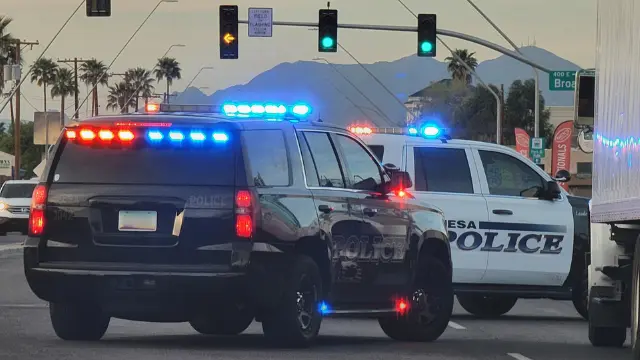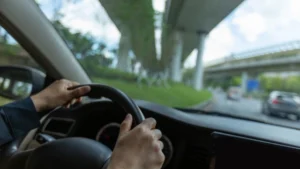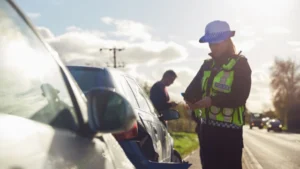

The Consequences of Criminal Speeding
Speeding is one of the most common traffic violations, but in some cases, it goes beyond a simple infraction. A driver exceeding the speed limit by a significant margin can result in a criminal speeding charge, also known as excessive speeding in many jurisdictions. Unlike minor speeding tickets, criminal speeding carries serious consequences, including hefty fines, license suspension, and even jail time.
Understanding the legal framework, possible defenses, and mitigating factors is crucial if you or someone you know is facing a criminal speeding charge. This guide breaks down the laws, explores real-life examples, and discusses effective defense strategies.
Excessive Speeding: When Does Speeding Become a Crime?
Not all speeding violations are treated the same. In most states, speeding becomes a criminal offense when a driver exceeds a specific threshold, such as:
- Driving 20-25 mph over the posted speed limit in residential areas.
- Speeding over 80-100 mph regardless of the posted limit.
- Exceeding the limit in school zones or construction areas.
- Reckless driving involves aggressive behavior combined with speeding.
For instance, in Arizona, a driver going over 85 mph on highways or 35 mph in school zones can be charged with criminal speeding, which is a Class 3 misdemeanor. In states like Georgia and Virginia, speeding 20 mph over the limit is classified as reckless driving, carrying potential jail time.
Legal Consequences of Excessive Speeding
The penalties for criminal speeding vary by state, but they often include:
- Fines: Ranging from $500 to $2,500, depending on the severity of the case.
- Points on License: Accumulating too many points can lead to suspension.
- License Suspension: A criminal speeding conviction can lead to a temporary or permanent revocation.
- Increased Insurance Rates: A conviction can double or triple insurance premiums.
- Jail Time: In some cases, drivers face up to six months in jail.
A conviction can also impact employment opportunities, especially for those with commercial driver’s licenses (CDLs) or jobs requiring a clean driving record.
Traffic Laws and Their Role in Criminal Speeding Cases
How Traffic Laws Define Criminal Speeding
Each state has its traffic laws that determine what qualifies as criminal speeding. These laws consider factors such as:
- Speed limits: Urban, rural, and highway zones have different thresholds.
- Weather conditions: Speeding in dangerous conditions can elevate charges.
- Driving history: Repeat offenders face harsher penalties.
Legal Defenses Against Criminal Speeding Charges
If charged with criminal speeding, you have several legal defenses available:
- Faulty Speed Detection Devices: Radar guns and speed cameras are not always accurate. Calibration errors can lead to wrongful charges.
- Necessity Defense: If you were speeding due to an emergency (e.g., medical emergency), the court may consider dropping charges.
- Mistaken Identity: In cases involving multiple vehicles, proving mistaken identity can serve as a strong defense.
- Lack of Proper Signage: If speed limits were not posted, the charge could be dismissed.
Hiring a criminal defense attorney is crucial in building a strong defense. Lawyers can negotiate lesser penalties, such as traffic school instead of criminal charges.
Sentencing Factors: What Affects Your Penalty?
Factors That Aggravate or Mitigate a Sentence
Sentencing is influenced by several factors, including:
- Driving Record: A clean record may result in reduced penalties, while prior offenses can lead to harsher sentencing.
- Speed Over Limit: Driving at 100+ mph often results in more severe consequences.
- Presence of Other Traffic Violations: If reckless driving or DUI is involved, penalties increase.
- Endangerment: If excessive speeding endangers pedestrians or causes an accident, the court is likely to impose stricter penalties.
Case Study: Fighting a Criminal Speeding Charge
Case Background
John, a 35-year-old professional, was pulled over for driving 95 mph in a 65 mph zone on a highway. He was charged with criminal speeding and faced a $1,500 fine, a six-month license suspension, and potential jail time.
Defense Strategy
John hired an experienced criminal defense attorney, who built a case based on the following points:
- Radar Calibration Issues: The attorney requested the maintenance logs for the radar gun used during the stop. The records showed that the device had not been calibrated in months, raising doubts about its accuracy.
- Weather Conditions: At the time of the stop, there was heavy wind. The attorney argued that gusts of wind could have affected the radar reading.
- Plea Bargain: Instead of fighting the charge outright, the lawyer negotiated a plea deal that reduced the charge to a civil speeding violation, sparing John from a criminal record.
Outcome
John paid a reduced $400 fine, attended a defensive driving course, and avoided jail time. His attorney’s strategy helped mitigate the charges and protect his driving record.
Conclusion
This in-depth guide provides valuable insights, real-life examples, and expert advice on handling a criminal speeding charge. If you’re dealing with a speeding-related legal issue, consulting a professional attorney can help you navigate the process and secure the best possible outcome.
Frequently Asked Questions (FAQs)
- Can I go to jail for criminal speeding? Yes, in many states, criminal speeding carries a maximum penalty of up to six months in jail, especially for repeat offenders or extreme cases.
- How can I get a criminal speeding charge reduced? A lawyer can help by challenging evidence, negotiating plea deals, or proving extenuating circumstances such as a medical emergency.
- Does criminal speeding affect insurance rates? Yes. A conviction can significantly increase insurance premiums, sometimes doubling or tripling rates.
- Will a criminal speeding charge stay on my record forever? It depends on the state. Some states allow expungement after a certain period, while others treat it as a permanent record.
- Is hiring an attorney necessary for a criminal speeding charge?While not mandatory, hiring an attorney increases your chances of getting charges reduced or dismissed. They can identify weaknesses in the prosecution’s case.



